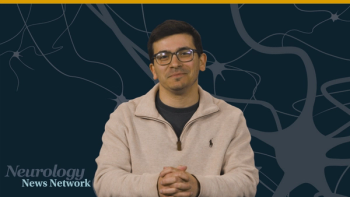
Neurology News Network for the week ending April 15, 2023. [WATCH TIME: 4 minutes]

Neurology News Network for the week ending April 15, 2023. [WATCH TIME: 4 minutes]
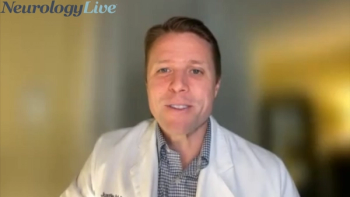
The director of functional neurosurgery at Baptist Health provided perspective on the advances of high intensity focused ultrasound as the institution nears 100 patients treated. [WATCH TIME: 4 minutes]
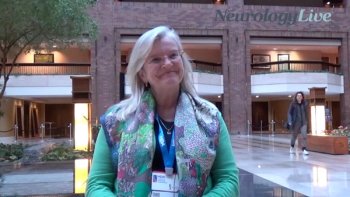
The chief medical officer of QurAlis talked about the potential of QRL-201 in patients with ALS from her talk presented at the 2023 MDA conference. [WATCH TIME: 4 minutes]
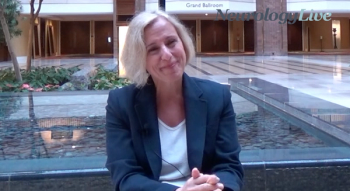
The Lillehei professor in stem cell and regenerative cardiovascular medicine at the University of Minnesota talked about the potential of investigating inducted pluripotent stem cells in neuromuscular diseases at MDA’s 2023 conference. [WATCH TIME: 5 minutes]
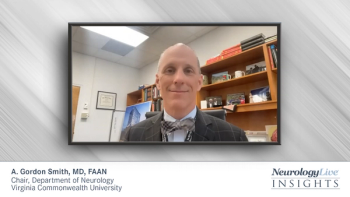
A. Gordon Smith, MD, FAAN, discusses the findings and implications of phase 3 ADAPT trial and open-label extension study evaluating the use of efgartigimod in the treatment of patients with myasthenia gravis.

A. Gordon Smith, MD, FAAN, explores the rationale for targeting the neonatal Fc receptor and the mechanisms for efgartigimod for use in the treatment of myasthenia gravis.
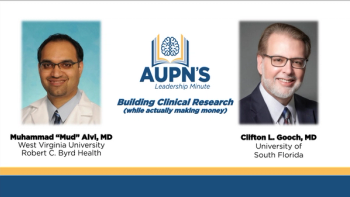
Episode 33 of the AUPN Leadership Minute features Mud M Alvi, MD, of West Virginia University; and Clifton L. Gooch, MD, of the University of South Florida. [WATCH TIME: 9 minutes]
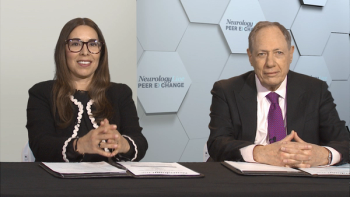
With a plethora of new treatments for NMOSD, a panel discusses safety concerns.
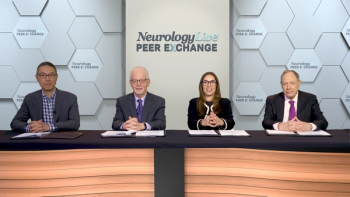
Experts in neurology discuss newly approved medications in the treatment of neuromyelitis optica spectrum disorder, including inebilizumab, eculizumab, and satralizumab.

A. Gordon Smith, MD, FAAN, considers how rituximab and eculizumab fit into the current standard of care for myasthenia gravis.

A. Gordon Smith, MD, FAAN, discusses the role of acetylcholine esterase inhibitors, immunosuppressive agents, IV immunoglobulin, corticosteroids, as well as newer agents in the treatment of myasthenia gravis.
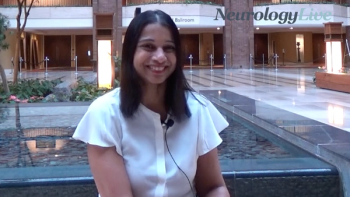
The neuromuscular physician at Virginia Commonwealth University talked about the promising future of gene therapy and access to resources in Duchenne muscular dystrophy. [WATCH TIME: 5 minutes]
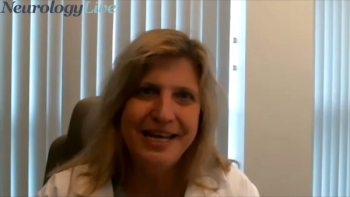
The neurosurgeon at Marcus Neuroscience Institute, Baptist Health, provided perspective on the advances of DBS and other invasive procedures for patients with degenerative disorders. [WATCH TIME: 4 minutes]
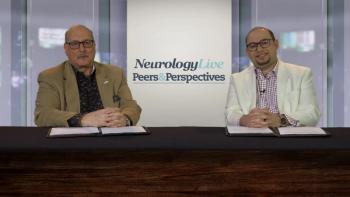
Drs Ahmed Zayed and Mark S. Freedman review emerging therapies in the pipeline and unmet needs in the multiple sclerosis treatment landscape, as well as take-home thoughts.

Mark S. Freedman, HBSc, MSc, MD, CSPQ, FAAN, FRCPC, provides an overview of the different types of Bruton tyrosine kinase inhibitors (BTKi) in management of MS.

Experts in neurology highlight the factors they consider when switching treatments for a patient with MS.
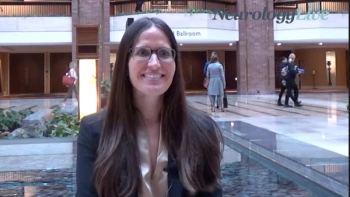
At the 2023 MDA’s Clinical and Scientific conference, the neurology resident at Penn Medicine talked about the challenges of delivering intrathecal therapies and the importance of planning clinical resources for patients with ALS. [WATCH TIME: 3 minutes]
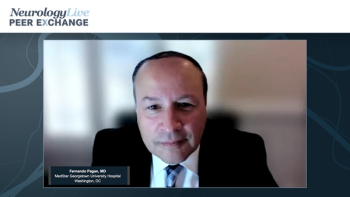
The expert panel shares strategies for accurate clinical diagnosis of dyskinesia in patients with Parkinson disease and discusses how dyskinesia may impact the quality of life.
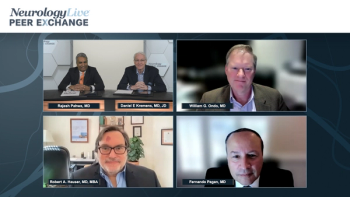
The expert neurology panel examines risk factors for development of dyskinesia in patients with Parkinson disease.
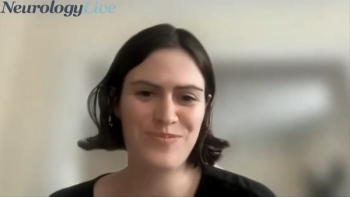
The immunology fellow at Brigham and Women’s Hospital discussed the current state of care for patients with MOGAD, and whether treatment decisions differ based on timing of attacks. [WATCH TIME: 7 minutes]
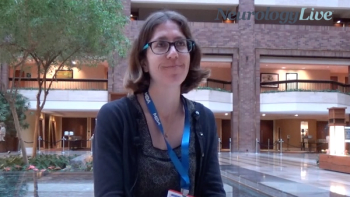
The co-founder and chief executive officer of MyoGene Bio talked about the advantages of gene editing over traditional gene therapy as a long term treatment for neuromuscular diseases at MDA’s 2023 conference. [WATCH TIME: 3 minutes]
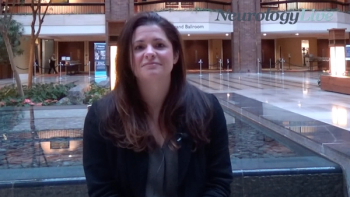
The research physical therapist at Nationwide Children’s Hospital talked about the role of physical therapy in the changing landscape of care with neuromuscular diseases at the 2023 MDA conference. [WATCH TIME: 5 minutes]
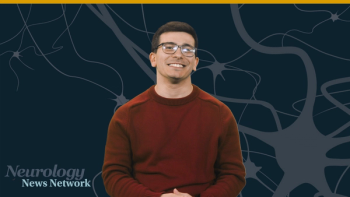
Neurology News Network for the week ending April 8, 2023. [WATCH TIME: 4 minutes]
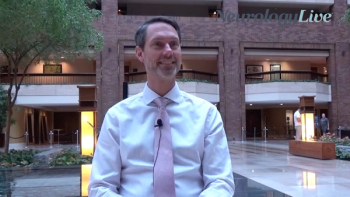
The associate professor of neurology at Columbia University spoke at the 2023 MDA conference about the unmet needs of patients with ALS and the potential of new gene therapies. [WATCH TIME: 5 minutes]
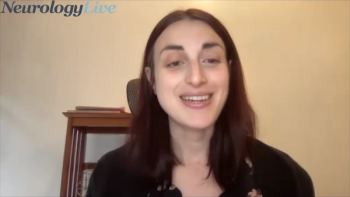
The executive director of the Alliance for Headache Disorders Advocacy discussed some of the successes from recent Headache on the Hills, and the expansion in centers of excellence for veterans with migraine. [WATCH TIME: 6 minutes]
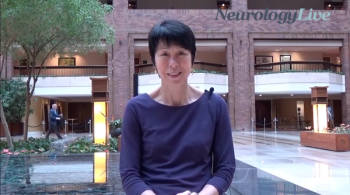
At the 2023 MDA conference, a pediatric endocrinologist from Cincinnati Children’s Hospital talked about the unmet needs in treating bone health for patients with Duchenne muscular dystrophy. [WATCH TIME: 5 minutes]
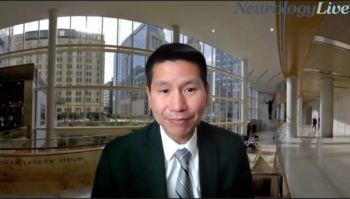
The neuroophtalmologist at Mayo Clinic detailed improvements in prescribing methods for NMOSD treatments and the conversations surrounding reversing neurodegeneration. [WATCH TIME: 3 minutes]
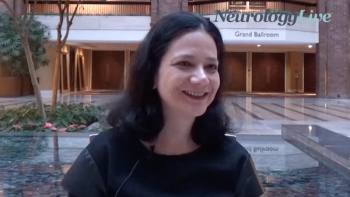
The associate professor of neurology at the University of Texas Health Science Center at Houston talked about advances in the classification of inflammatory myopathies at the recently concluded 2023 MDA conference. [WATCH TIME: 4 minutes]
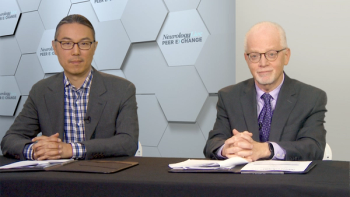
Drs Brian Weinshenker, Flavia Nelson, Robert Shin, and Aaron Miller discuss the current neuromyelitis optica spectrum disorder treatment landscape.

Expert neurologists review treatment goals in patients with neuromyelitis optica spectrum disorder and share insights on long-term disease-modifying therapies.